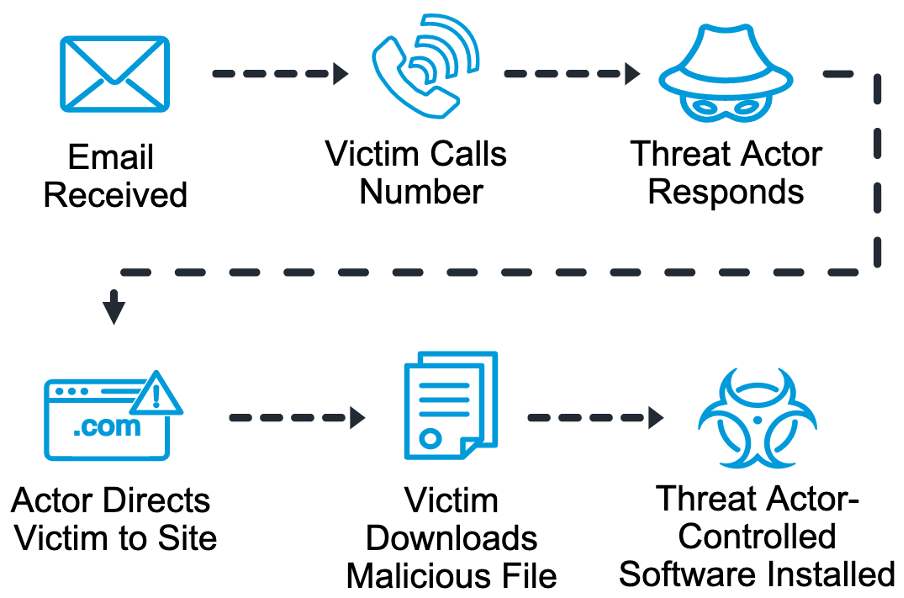Cybersecurity is not oversaturated. The demand for skilled professionals continues to grow due to increasing cyber threats.
Cybersecurity remains a crucial field in today’s digital age. As technology advances, cyber threats become more sophisticated and frequent. Businesses and individuals seek robust security measures to protect sensitive data and systems. The industry demands a continuous influx of skilled professionals to combat these evolving threats.
Many organizations struggle to find qualified candidates, highlighting the gap between supply and demand. This scenario presents significant opportunities for those entering or advancing in the cybersecurity field. With the right skills and certifications, professionals can enjoy rewarding and stable careers. Cybersecurity’s importance will only grow, ensuring ongoing demand for expertise.
Cybersecurity Landscape: A Reality Check
The cybersecurity landscape constantly evolves. New threats emerge daily. The demand for skilled professionals grows exponentially. Is the field oversaturated? Let’s dive into the current state of cyber threats and the demand for cybersecurity professionals.
Current State Of Cyber Threats
Cyber threats have become more sophisticated and frequent. Hackers target both individuals and organizations. They use advanced techniques to breach systems. Common threats include:
- Phishing Attacks: Deceptive emails trick people into revealing sensitive information.
- Ransomware: Malware encrypts data, demanding a ransom for its release.
- Data Breaches: Unauthorized access to confidential data leads to severe consequences.
- Malware: Malicious software disrupts, damages, or gains unauthorized access to systems.
These threats pose significant risks. Organizations need robust defense mechanisms. They must stay vigilant and adaptive.
Demand For Cybersecurity Professionals
The demand for cybersecurity professionals is at an all-time high. Companies need experts to protect their digital assets. The skills gap in cybersecurity is significant. This leads to numerous job opportunities in the field.
| Role | Average Salary | Job Openings |
|---|---|---|
| Security Analyst | $90,000 | 10,000+ |
| Penetration Tester | $100,000 | 5,000+ |
| Security Architect | $120,000 | 3,000+ |
Despite the high demand, finding qualified professionals is tough. Many positions remain unfilled. Training and education in cybersecurity are crucial. Aspiring professionals should focus on gaining practical experience. Certifications like Certified Information Systems Security Professional (CISSP) are highly valued.
The cybersecurity field offers numerous opportunities. It is not oversaturated but requires continuous learning. Staying updated with the latest trends is essential for success.
Myth Vs. Fact: The Oversaturation Debate
In the ever-evolving world of cybersecurity, the debate on whether the field is oversaturated persists. Some argue that the job market is flooded, making it hard for new professionals to find work. Others believe the demand for skilled cybersecurity experts continues to grow. Let’s dive into the Myth vs. Fact: The Oversaturation Debate to uncover the truth.
Common Oversaturation Myths
Many believe the cybersecurity field is too crowded. This myth stems from several misconceptions:
- Myth: Too many graduates, not enough jobs.
- Myth: Automation will replace cybersecurity jobs.
- Myth: Only large corporations need cybersecurity experts.
These myths create a false perception of an oversaturated market. The reality is often quite different.
Statistical Evidence On Job Market
Let’s look at the data to understand the true state of the job market:
| Statistic | Data |
|---|---|
| Job Openings | 500,000+ in the USA alone |
| Growth Rate | 31% from 2019 to 2029 |
| Average Salary | $98,350 per year |
These statistics highlight the growing demand for cybersecurity professionals. It’s clear that opportunities abound for those with the right skills.
Evolving Threats: A Job Market Driver
The landscape of cybersecurity is continuously changing. Cyber threats are growing in both number and complexity. This rise in advanced cyber attacks creates a strong demand for skilled cybersecurity professionals.
Rise Of Sophisticated Cyber Attacks
New types of cyber attacks appear almost every day. Hackers are using more advanced techniques to breach systems. Businesses are facing threats like ransomware, phishing, and malware.
These sophisticated attacks can cripple organizations. They can steal valuable data and disrupt operations. This makes cybersecurity more important than ever before.
Impact On Cybersecurity Hiring
The increase in cyber threats has a direct impact on hiring. Companies need more experts to defend against these attacks. This drives the demand for cybersecurity professionals.
According to a recent report, the demand for cybersecurity jobs is growing. Below is a table showing the increase in job postings over the past few years:
| Year | Job Postings |
|---|---|
| 2018 | 100,000 |
| 2019 | 120,000 |
| 2020 | 150,000 |
| 2021 | 180,000 |
This trend shows no signs of slowing down. The job market for cybersecurity remains robust. Companies are willing to pay a premium for skilled professionals.
To meet this demand, educational institutions are also offering more courses. Certifications in cybersecurity are also becoming popular. This helps in building a strong workforce to tackle evolving threats.
Industry Expansion: More Than Just Numbers
The cybersecurity industry is growing fast. This growth means more than just numbers. It also means a variety of new opportunities. The field is expanding in many directions. This expansion includes diverse roles and specialized firms.
Diverse Cybersecurity Roles
Cybersecurity is not just about hacking. It includes many different jobs. Here are some roles you might find:
- Security Analyst: Monitors systems for suspicious activity.
- Penetration Tester: Tests systems for weaknesses.
- Security Architect: Designs secure IT systems.
- Incident Responder: Handles security breaches quickly.
- Compliance Manager: Ensures company follows laws and rules.
Growth Of Specialized Cybersecurity Firms
Many new firms are entering the cybersecurity market. These firms offer specialized services. Some focus on specific industries. Others focus on unique types of security. Here are some examples:
| Firm Type | Specialization |
|---|---|
| Healthcare Security | Protects patient data and healthcare systems. |
| Financial Security | Secures banking and financial transactions. |
| IoT Security | Secures Internet of Things devices. |
| Cloud Security | Protects data stored in the cloud. |
Education And Cybersecurity Careers
Cybersecurity careers are in high demand. Education plays a key role. Understanding how to start is essential. This section explores educational paths and skill gaps in cybersecurity.
Cybersecurity Educational Programs
Many universities offer cybersecurity programs. These programs cover various topics:
- Network Security
- Cryptography
- Ethical Hacking
- Incident Response
These courses provide essential knowledge. They prepare students for cybersecurity careers. Students learn practical skills. They also gain theoretical knowledge.
Bridging The Skills Gap
The cybersecurity industry faces a skills gap. Many jobs remain unfilled. This gap presents both challenges and opportunities.
Educational institutions play a vital role. They bridge this gap through:
- Hands-on Training
- Internship Programs
- Certification Courses
Hands-on training is crucial. Students work on real-world problems. Internship programs offer industry experience. Certification courses validate skills. They enhance job prospects.
Here is a table showing popular cybersecurity certifications:
| Certification | Provider |
|---|---|
| Certified Information Systems Security Professional (CISSP) | ISC2 |
| Certified Ethical Hacker (CEH) | EC-Council |
| CompTIA Security+ | CompTIA |
These certifications are highly valued. They open doors to many opportunities. Combining education and certification is key. It helps bridge the skills gap in cybersecurity.
Technology Advancements And Job Creation
Technology advancements shape our world daily. Cybersecurity is no exception. New tech brings new job opportunities. Let’s explore the impact of emerging technologies and the creation of new roles in cybersecurity.
Influence Of Emerging Technologies
Emerging technologies like AI and IoT change cybersecurity landscapes. AI helps in detecting threats faster. IoT creates more devices needing protection. Blockchain ensures data integrity. These advancements require skilled professionals. Companies need experts to manage these technologies.
- AI for threat detection
- IoT device security
- Blockchain for data integrity
| Technology | Impact on Cybersecurity |
|---|---|
| Artificial Intelligence (AI) | Enhances threat detection |
| Internet of Things (IoT) | Increases devices needing protection |
| Blockchain | Ensures data integrity |
New Roles In Cybersecurity
New technologies create new job roles. These roles address specific needs. Some new roles include:
- AI Security Specialist: Manages AI-based security systems.
- IoT Security Analyst: Secures IoT devices.
- Blockchain Security Expert: Ensures blockchain data safety.
These roles need unique skills. Job seekers must adapt. Learning new technologies is key. The demand for these roles is high. Companies seek skilled professionals to fill these positions.
The cybersecurity field is evolving. New technologies drive job creation. Skilled professionals are always in demand.
Global Response To Cyber Risks
The world faces increasing cyber risks daily. Nations and organizations are taking steps to combat these threats. The global response to cyber risks is robust and multi-faceted. Here’s how the world is tackling these challenges.
International Cybersecurity Initiatives
Many countries have developed national cybersecurity strategies. These strategies aim to protect critical infrastructure and sensitive data. Below are some key international initiatives:
- EU Cybersecurity Act: Establishes a framework for cybersecurity certification.
- Cybersecurity Tech Accord: Over 100 companies pledge to protect users globally.
- APEC Cybersecurity Strategy: Promotes secure digital economies in the Asia-Pacific region.
Cross-border Collaboration Efforts
Countries are collaborating to combat cyber threats. This cooperation enhances global security. Here are some notable efforts:
| Initiative | Description |
|---|---|
| Global Forum on Cyber Expertise (GFCE) | Fosters international cooperation and knowledge sharing. |
| NATO Cyber Defence | Provides a collective defense strategy among member nations. |
| Interpol Global Cybercrime Program | Facilitates collaboration between law enforcement agencies worldwide. |
These initiatives ensure a unified approach to cybersecurity. They help prevent attacks and improve response times.

Credit: medium.com
Public And Private Sector Dynamics
The field of cybersecurity is essential for protecting sensitive data. Both public and private sectors play critical roles. Understanding their dynamics can reveal much about the industry’s saturation.
Government Cybersecurity Policies
Governments worldwide create policies to ensure data protection. These policies set standards for security measures. They help safeguard national infrastructure and citizens’ data.
Examples of Government Policies:
- General Data Protection Regulation (GDPR) in Europe
- Federal Information Security Management Act (FISMA) in the USA
- Cybersecurity Law of the People’s Republic of China
These policies often require organizations to adopt strict security protocols. Failure to comply can result in heavy fines. These regulations drive the demand for cybersecurity professionals.
Corporate Investment In Cybersecurity
Corporations invest heavily in cybersecurity. They aim to protect their digital assets and customer data.
Key Areas of Investment:
| Area | Description |
|---|---|
| Security Software | Includes antivirus, firewalls, and encryption tools. |
| Employee Training | Ensures staff can identify and respond to threats. |
| Incident Response | Plans and teams to handle breaches effectively. |
These investments are crucial for maintaining trust and avoiding data breaches. Companies often prioritize cybersecurity in their budgets.
Both sectors contribute to the demand for cybersecurity professionals. This ongoing need suggests that the field may not be oversaturated yet.
Cybersecurity Talent: A Closer Look
The world of cybersecurity is ever-evolving. The demand for skilled professionals continues to grow. But is the field oversaturated? Let’s take a closer look at the talent driving this industry.
Profile Of A Cybersecurity Professional
A typical cybersecurity professional possesses a unique skill set. They are experts in identifying and mitigating security threats. Their skills include:
- Strong analytical abilities
- Proficiency in various programming languages
- Knowledge of network security protocols
- Experience with risk management
Most professionals hold degrees in computer science or related fields. Certifications like Certified Information Systems Security Professional (CISSP) or Certified Ethical Hacker (CEH) are common.
Career Paths And Progression
The career paths in cybersecurity are diverse. Here are some common roles:
| Role | Description |
|---|---|
| Security Analyst | Monitors and protects networks from threats. |
| Penetration Tester | Identifies vulnerabilities through simulated attacks. |
| Security Architect | Designs secure network systems. |
| Chief Information Security Officer (CISO) | Leads the organization’s security strategy. |
Career progression often starts at entry-level positions. Over time, professionals can advance to senior roles. Continuous learning is crucial in this field. Staying updated with the latest trends and technologies is key.

Credit: medium.com
Future Outlook: Sustaining The Momentum
The field of cybersecurity is ever-evolving. New threats and technologies emerge each day. Sustaining the momentum in cybersecurity requires continuous innovation and adaptation. This section explores the future outlook of this critical field.
Predictive Trends In Cybersecurity
Predictive trends help us understand where cybersecurity is heading. These trends shape the future landscape.
- Artificial Intelligence (AI): AI can predict and detect cyber threats. It helps automate security measures.
- Machine Learning (ML): ML algorithms learn from past data. They improve threat detection over time.
- Blockchain Technology: Blockchain offers secure data transactions. It ensures data integrity.
- Quantum Computing: Quantum computing poses new challenges. It also offers advanced security solutions.
Preparing For The Future Of Cybersecurity
Preparing for the future involves adopting new strategies. Organizations must stay ahead of emerging threats.
- Continuous Education: Cybersecurity professionals need ongoing training. Staying updated is crucial.
- Advanced Tools: Invest in cutting-edge security tools. They provide better protection.
- Collaboration: Share information with other organizations. Collaboration helps combat cyber threats.
- Regular Audits: Perform regular security audits. Identify and fix vulnerabilities.
The future of cybersecurity is bright but challenging. Staying prepared ensures ongoing protection against threats.

Credit: mrinetwork.com
Frequently Asked Questions
Is Cyber Security Becoming Over Saturated?
Cyber security is not oversaturated. Demand for skilled professionals continues to grow due to increasing cyber threats.
Is Cybersecurity Entry Level Over Saturated?
The entry-level cybersecurity job market is competitive but not oversaturated. Demand continues to grow for skilled professionals.
Is Cybersecurity A Dying Industry?
No, cybersecurity is not a dying industry. It continues to grow as cyber threats increase. Companies need robust security measures to protect their data. The demand for cybersecurity professionals remains high.
Is Cybersecurity In High Demand?
Yes, cybersecurity is in high demand. Companies need experts to protect against increasing cyber threats. The job market is growing rapidly.
Is Cybersecurity Career Oversaturated?
The cybersecurity field is not oversaturated. There is a high demand for skilled professionals.
Are There Many Jobs In Cybersecurity?
Yes, there are numerous job opportunities in cybersecurity due to increasing cyber threats.
What Skills Are Needed For Cybersecurity?
Key skills include network security, ethical hacking, risk management, and familiarity with cybersecurity tools.
Is Cybersecurity A Good Career?
Yes, cybersecurity offers excellent career prospects, job stability, and competitive salaries.
Conclusion
The cybersecurity field offers many opportunities despite perceived saturation. Demand for skilled professionals remains high. Continuous learning and specialization are key. Stay updated with industry trends. Cyber threats evolve, so your expertise is always valuable. A career in cybersecurity promises growth and relevance in protecting digital assets.

Richard Martinez is a seasoned cybersecurity expert based in San Francisco, CA, with over 15 years of experience in protecting digital assets for multinational corporations. His expertise includes threat analysis, penetration testing, and developing robust security protocols to safeguard sensitive data.


